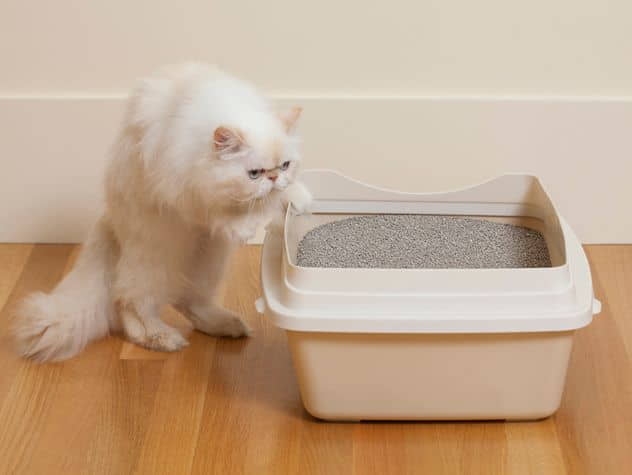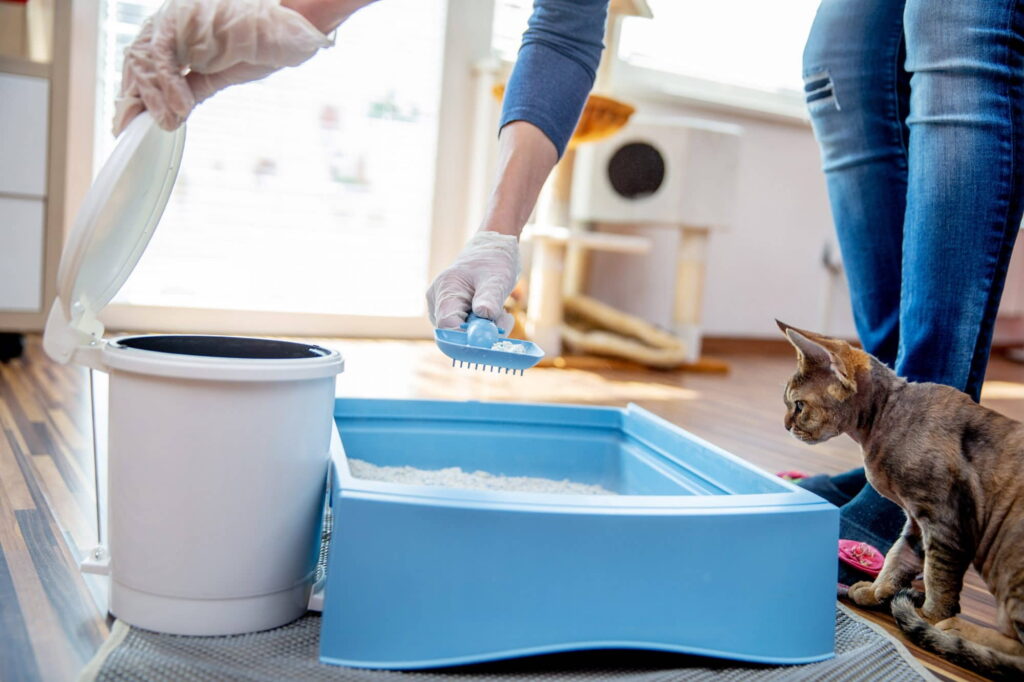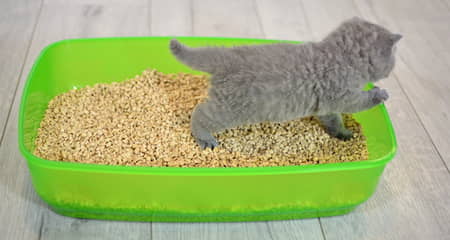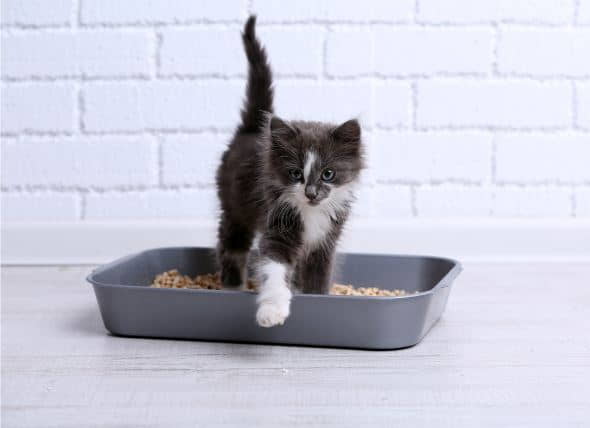Amy Marder, V.M.D.
“Malachy,” a beautiful, three-year-old neutered Persian cat, was brought in to see me soon after our new Center for Behavioral Therapy opened. Quite a confident kitty, Malachy made himself comfortable on our consultation room couch shortly after Tish, his owner, let him out from the carrier. Tish had adopted Malachy “by happenstance” when she was at her groomer’s shop with her cat Cormick. The groomer had acquired Malachy from his previous owner, who could not keep him because he was fighting with the owner’s other cat.

Fortunately, Malachy and Cormick did not fight. In fact, the two cats became fast friends who loved to play with and chase each other. In his new household, however, Malachy’s toilet habits were far from perfect. Tish had her veterinarian check for medical problems that might explain Malachy’s frequent “mistakes,” but none were found.
Tish had put up with Malachy’s housesoiling for a year before she came in to see me. Recently, the problem had become so bad that Malachy was either urinating or defecating outside the litterbox once a day, and Tish decided she needed help.

Tish and her cats divided their time between an apartment in the city and a country home. Over the year, Tish had provided a variety of litterboxes: some with hoods, some without, some in bathrooms, others in bedrooms. At first Tish used plain clay litter, but most recently she experienced begun to use a clumpable form. Tish scooped the boxes several times a day and changed the boxes completely once a month, so the cleanliness of the boxes was not in question. Malachy used the boxes, but he also used Tish’s furniture as a toilet. Her chairs and guestroom bed were his favorites.
The Grass Is Always Greener?
After learning Malachy’s history, I felt the cat was just not happy with the present state of his litterboxes and was looking for alternatives. Like many Persians, he spent more time pawing the sides of the litterbox than scratching in the litter. (Longhaired cats in general have a higher incidence of litterbox problems. It might be that they don’t want to soil their long, flowing coats!

With Tish’s help, I set up an experiment to find litterboxes that Malachy would prefer to his owner’s furniture. I asked Tish to provide three large, unhooded litterboxes in both the city and the country. I asked her to continue to use the clumpable litter in one, a section of newspaper in the second and old-fashioned coarse clay litter in the third. Tish was to praise Malachy and give him a treat each and every time she saw him use a box. Simultaneously, to break the furniture habit, I asked Tish to cover the chairs and bed with pieces of thick vinyl carpet runner, prickly side up.
After the first few weeks it became apparent that Malachy preferred the plain clay litter to the clumpable kind (most cats choose the clumpable litter). The newspaper he didn’t use at all. Cormick had not been picky and reliably used any litter that was available. Then we gave Malachy three boxes of his chosen litter in each home. We did this because some cats prefer to urinate and defecate in different places; the third box would make sure there had been no overcrowding at the boxes.
For three months there have been no accidents. Tish is ready to remove the protective covers from her chairs and bed. Now that Malachy is in the habit of using the new boxes, he shouldn’t go back to his old habits.
Excellent Prognosis

Urination and defecation outside the litterbox is the most common feline behavior problem.) Many cats are given up because of house-soiling problems. Most of the time this is unnecessary. The prognoswill be for cats with problems like Malachy’s is excellent. Between 70 percent and 75 percent of litterbox problems are cured by simple treatments like the one Tish employed with Malachy. If your cat begins to urinate or defecate outside the box, see your veterinarian first. He or she will rule out medical causes. If the problem is considered to be a behavioral one, ask for a referral to a cat behavior specialist.
Wondering about What Size Litter Box Should I Have? Check it out on our latest post!


0 Comments